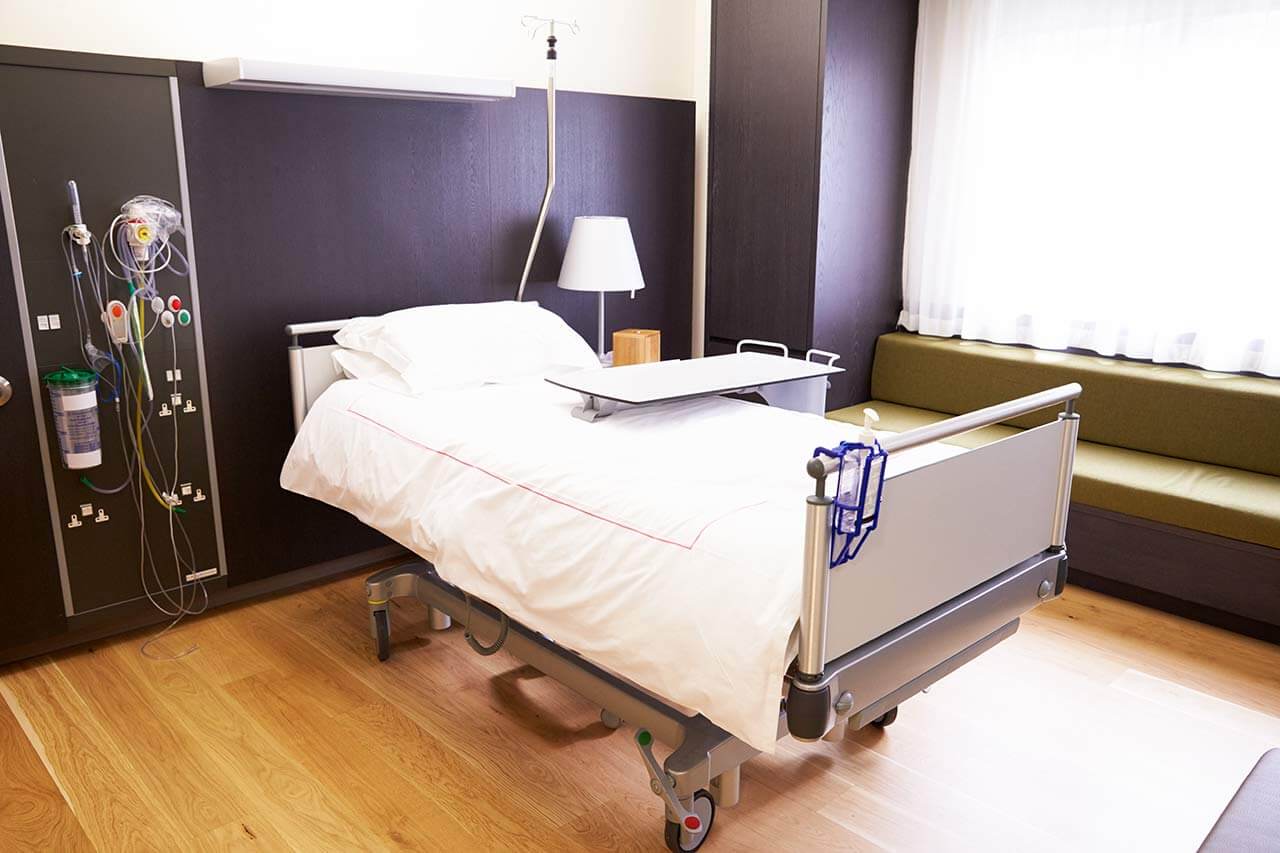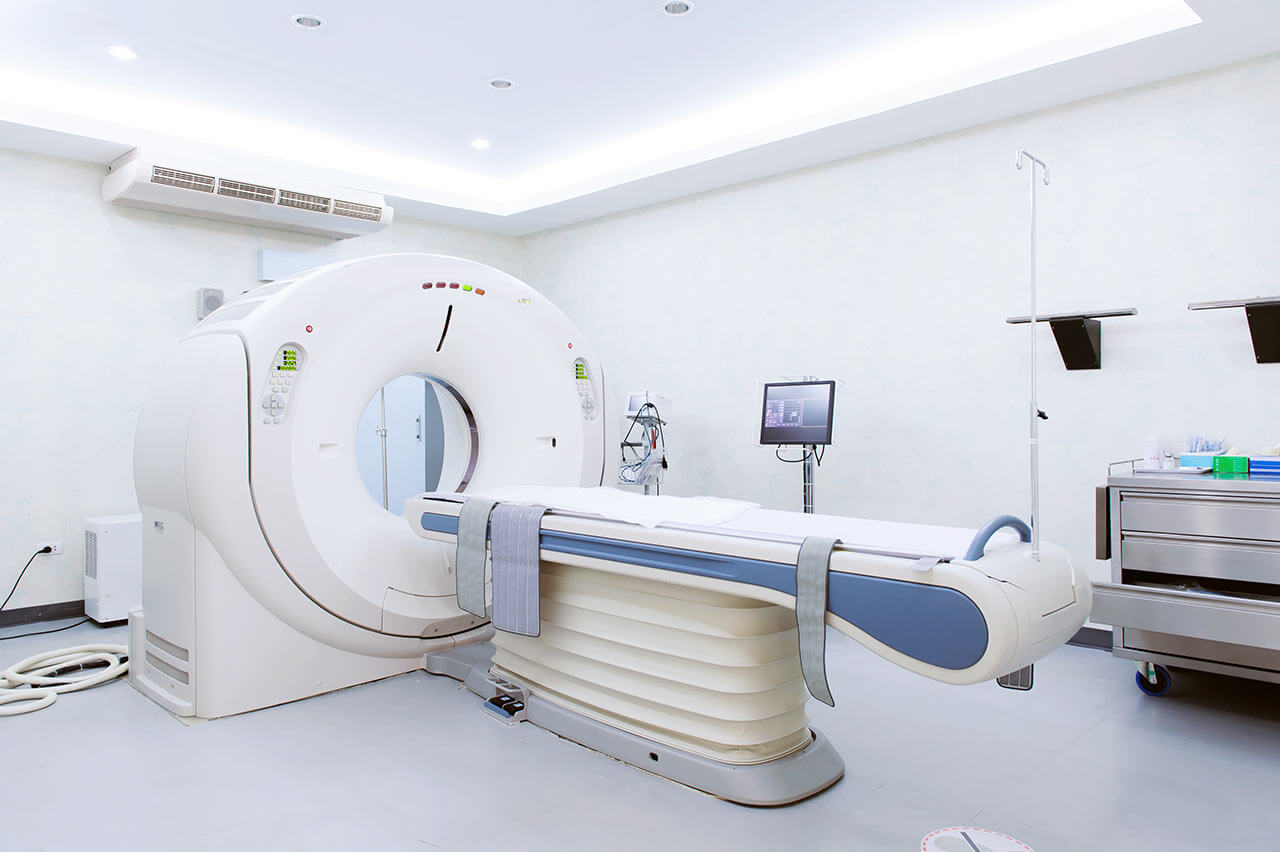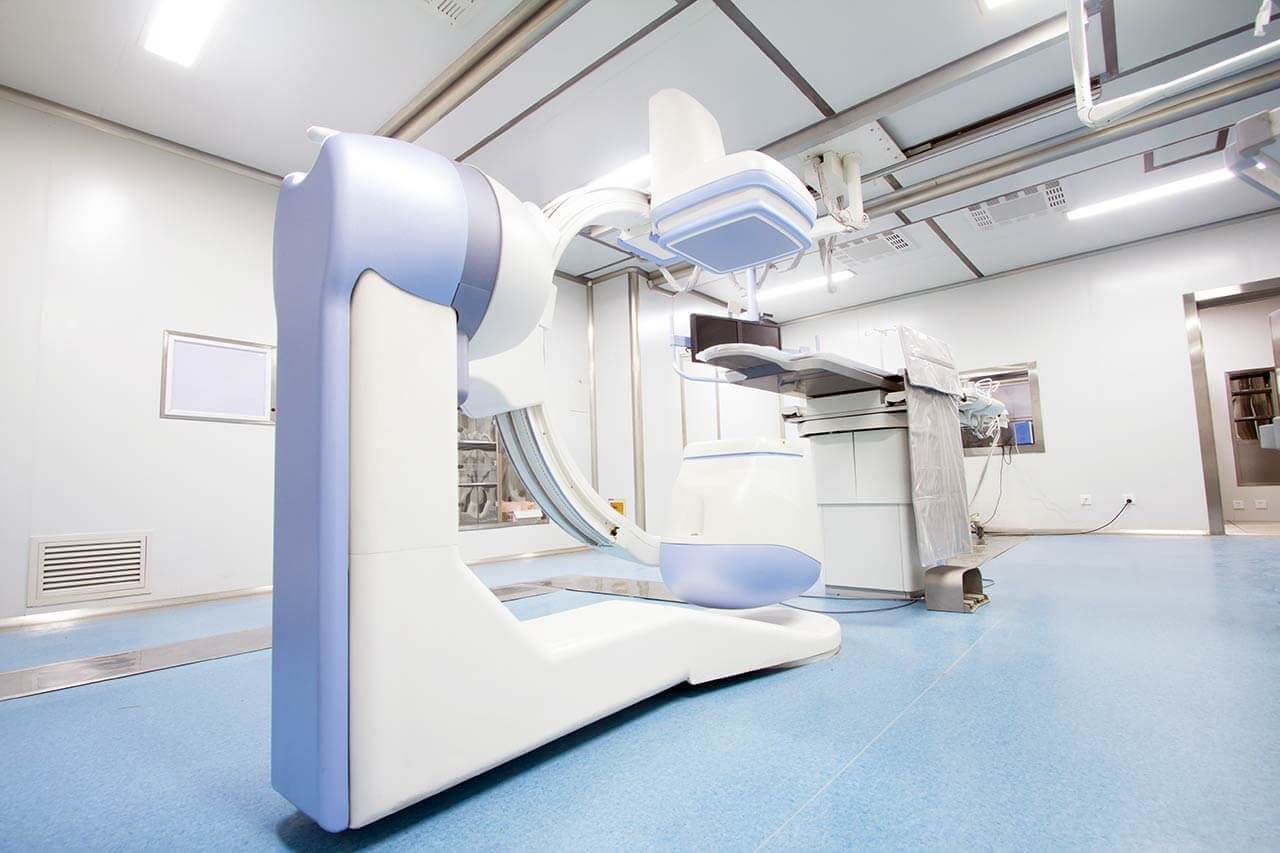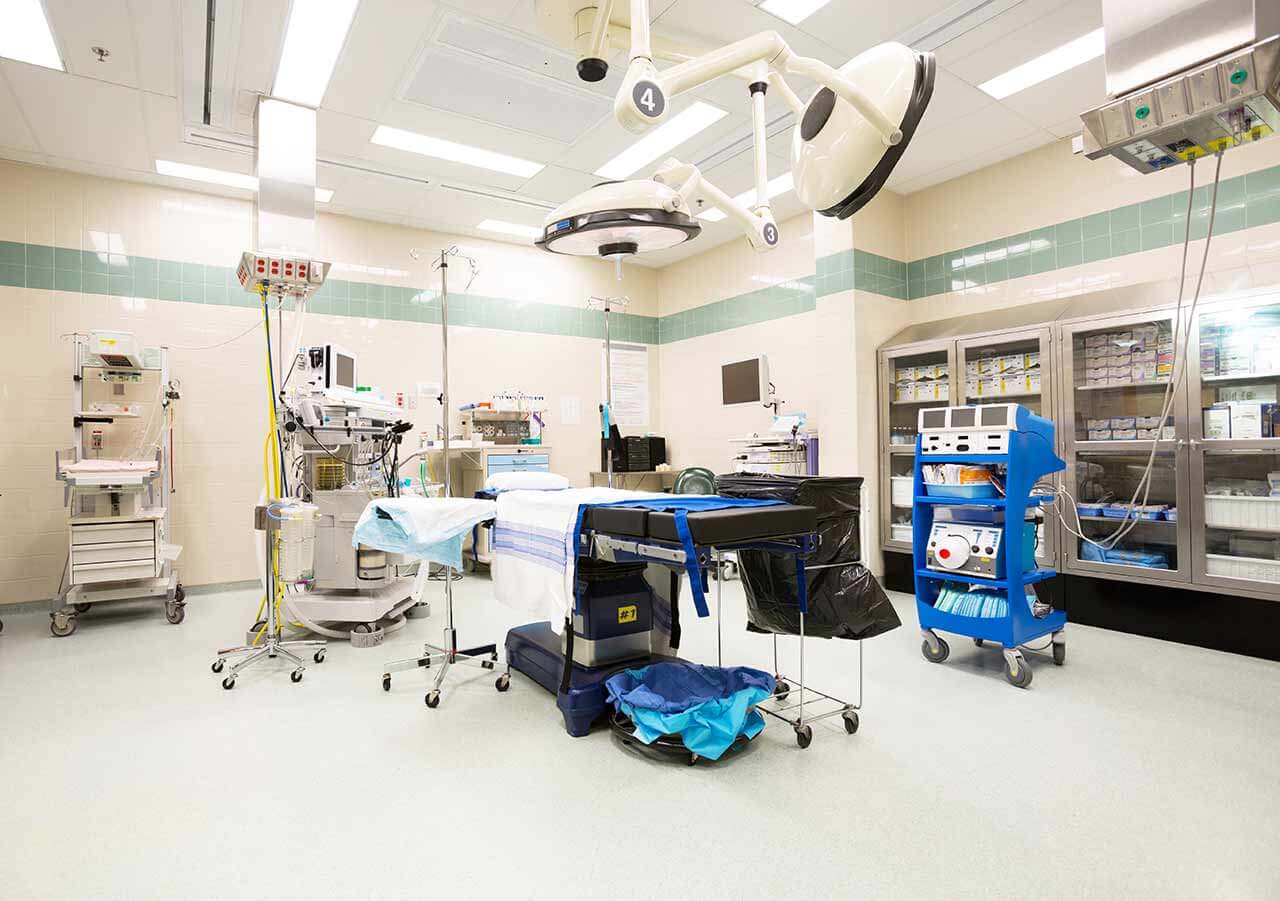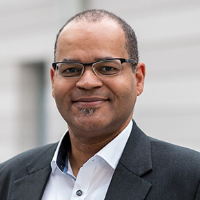
The program includes:
- Initial presentation in the clinic
- clinical history taking
- physical examination
- review of medical records
- laboratory tests:
- complete blood count
- general urine analysis
- biochemical analysis of blood
- TSH-basal, fT3, fT4
- indicators of inflammation (CRP, ESR)
- indicators blood coagulation
- abdominal ultrasound
- CT/MRI abdomen
- abdominal ultrasound
- gastroscopy with biopsy
- analysis on the hp (helicobacter pylori)
- preoperative care
- surgical excision of stomach polyps
- microscopic examination
- symptomatic treatment
- control examinations
- the cost of essential medicines and materials
- nursing services
- nutrition recommendations
- full hospital accommodation
- explanation of future recommendations
Required documents
- Medical records
- Esophagogastroduodenoscopy (EGD) (if available)
Service
You may also book:
 BookingHealth Price from:
BookingHealth Price from:
About the department
According to the Focus magazine, the Department of Pediatric Surgery at the Charite University Hospital Berlin is ranked among the best medical facilities in Germany in its field of expertise!
The department offers a wide range of surgical interventions for the treatment of various diseases in children, including newborns. The department's specialists have mastered modern surgical techniques, striving to provide young patients with the most effective and safe treatment. Here, surgeries are performed on newborns and premature infants with congenital defects and acquired diseases, children with general pathologies, anorectal malformations, diseases of the liver, gallbladder and bile ducts, pathologies of the lungs, endocrine system, vascular malformations, oncological diseases, and urological pathologies. The department's surgical team also provides qualified care to children with injuries, burns, and malformations of the hand and foot. A large proportion of surgical interventions are performed using minimally invasive techniques, which allows for extremely rapid recovery of the child in the postoperative period, eliminating the need for prolonged hospitalization. Children are operated on in high-tech operating rooms with the latest generation equipment. The department's surgeons work in close collaboration with all related pediatric departments of the Charite University Hospital Berlin – this contributes to comprehensive treatment of the highest level. The department is headed by Prof. Dr. med. Steven Warmann.
Young patients receive care from an experienced medical team that includes highly qualified pediatric surgeons, anesthesiologists, radiologists, nurses, and physiotherapists. The specialists not only ensure excellent quality of medical care but also provide a warm and attentive environment, creating a friendly atmosphere in the department. For complex cases, treatment decisions are made through multidisciplinary team meetings where the team collaboratively reviews the child's diagnostic data and determines the optimal approach. The department's surgeons maintain open communication with children and parents, providing comprehensive information about planned procedures and expected outcomes.
Surgical treatment is carried out in both inpatient and outpatient settings, depending on the complexity of the clinical case. Before surgery, the young patient undergoes a comprehensive examination: clinical assessment, laboratory diagnostics, ultrasound, and imaging studies. Prior to surgery and immediately before it begins, the medical team performs premedication – administering medications to reduce anxiety and fear in the child. The department employs highly qualified anesthesiologists who individually select the optimal type of anesthesia: inhalation or injection, local or general. After surgery, the child is transferred to a specialized postoperative recovery ward under the supervision of dedicated doctors and nursing staff. At this stage, one of the parents is allowed to stay with the young patient.
When possible, operations are performed using gentle minimally invasive techniques that ensure rapid recovery of the young patient. Such interventions are performed using high-precision instruments and modern equipment. The key advantage of minimally invasive operations is the absence of large and traumatic incisions – surgical access is provided through 2-3 miniature skin incisions through which thin instruments with built-in tiny video cameras are inserted. Images of the operating field are magnified and transmitted to a monitor in real-time. This allows the clinic's surgeons to clearly see the smallest anatomical structures and virtuosically perform the necessary surgical manipulations.
Over the years of work, an impressive number of operations have been performed in the department, giving children with complex diseases and developmental defects a chance for a full life. Today, the clinic is deservedly considered a leading center for pediatric surgery in Germany with consistently high rates of treatment success. This is due to the exceptional competence and rich experience of the department's surgeons. For the impeccable level of service for young patients, the department has been awarded prestigious quality certificates, including the certificate of the German Society of Burn Medicine (DGV), the certificate of the International Society for the Treatment of Congenital Hyperinsulinism (CHI), the certificate of the Joint Committee on Pediatric Urology (JCPU), the eUROGEN certificate, and the IQM certificate.
The main areas of specialization of the department include:
- Neonatal surgery
- Operations for atresia of various parts of the gastrointestinal tract, including esophageal atresia
- Operations for abdominal wall defects: gastroschisis, omphalocele
- Operations for diaphragmatic hernia
- Operations for intestinal duplication
- Operations for anorectal malformations, including Hirschsprung's disease and anal atresia
- Operations for hypertrophic pyloric stenosis
- Operations for hemangiomas
- Operations for lymphangiomas
- Operations for acute abdomen in premature infants
- Pediatric abdominal surgery
- Operations for diseases of the intestines, liver, bile ducts, pancreas, spleen, and other organs of the gastrointestinal tract
- Operations for abdominal tumors
- Appendectomy
- Cholecystectomy
- Splenectomy
- Nissen fundoplication
- Pediatric endocrine surgery
- Operations for thyroid diseases
- Operations for congenital hyperinsulinism
- Pediatric thoracic surgery
- Minimally invasive thoracoplasty for funnel chest and pigeon chest deformities
- Thoracoscopic interventions for inflammations and tumors of the lungs and pleura
- Thoracoscopic interventions for lung pathologies: lung cysts, lung malformations, lung sequestration
- Pediatric oncological surgery
- Operations for malignant tumors of all localizations, particularly in the area of the abdomen, kidneys, adrenal glands, pancreas, lungs
- Operations for benign neoplasms: lymphangiomas, hemangiomas, skin tumors
- Pediatric urology
- Operations for urethral malformations: hypospadias, epispadias
- Operations for vesicoureteral reflux
- Operations for phimosis
- Operations for urethral valves
- Operations for adrenogenital syndrome
- Urinary diversion
- Laparoscopic urethroplasty
- Laparoscopic nephrectomy/heminephrectomy
- Pediatric traumatology
- Operations for fractures
- Operations for burn injuries
- Pediatric hand surgery
- Operations for congenital hand deformities: syndactyly, polydactyly, hexadactyly
- Operations for acquired hand deformities: contractures after burns, deformities after injuries
- Pediatric foot surgery
- Operations for flat feet
- Operations for clubfoot
- Operations for partial or complete absence of the foot
- Operations for congenital defects of the toes: polydactyly, syndactyly, and oligodactyly
- Pediatric vascular surgery
- Operations for vascular malformations
- Other surgical services
Curriculum vitae
Higher Education, Postgraduate Training, and Professional Career
- Since 01.01.2024 Head Physician, Department of Pediatric Surgery, Charite University Hospital Berlin.
- Since 15.02.2024 Head Physician, Department of Pediatric Surgery, Neonatal Surgery and Pediatric Urology, Vivantes Neukölln Hospital Berlin.
- 2005 Board certification in Pediatric Surgery.
- 2007 Habilitation and Professorship for Pediatric Surgery.
- 2002 - 2023 Senior Physician, Department of Pediatric Surgery and Pediatric Urology, University Hospital Tuebingen.
- Since 1997 Internship, Department of Pediatric Surgery, Hannover Medical School.
- Since 1989 Medical studies, Saarland University (Germany) and University of Rennes (France).
Clinical Interests
- Neonatal surgery.
- Complex surgical procedures on the abdominal organs.
- Complex surgical procedures on the chest organs.
- Short bowel syndrome surgery.
- Tumor surgery.
- Liver and biliary tract surgery.
- Endocrine surgery.
Photo of the doctor: (c) Charité – Universitätsmedizin Berlin
About hospital
According to the reputable Focus magazine, the Charite University Hospital Berlin ranks 1st among the best healthcare facilities in Germany!
The hospital is one of the largest and leading university medical complexes in Europe, and also consistently holds leading positions in the international medical arena. The Charite operates on the basis of the Faculty of Medicine of the Free University of Berlin and the Humboldt University of Berlin. Patients are offered modern diagnostics and treatment with the very latest methods, many of which were developed by professors and scientists of the medical complex. More than half of all German Nobel Prize winners in medicine and physiology, such as Emil von Behring, Robert Koch, and Paul Ehrlich, studied and worked at the Charite University Hospital Berlin. The medical complex includes more than 100 specialized departments and institutes, which helps to ensure that patients receive care in all existing medical specialties. The hospital has exceptional experience in treating complex clinical cases.
Each year, the hospital treats more than 137,800 inpatients and more than 787,700 outpatients. The hospital has a bed capacity of 3,293 beds. A huge medical team consisting of 5,670 scientists and doctors and more than 6,000 nurses work for the benefit of the patients. The main task of all specialists of the medical facility is to restore the patient's health or save his life in critical cases. The hospital has a friendly atmosphere where every patient feels care, respect and empathy.
The Charite University Hospital Berlin is generously funded by the German government, which is why it offers patients the latest generation of excellent equipment and comfortable infrastructure. The Charite medical complex is equipped with da Vinci robotic surgery systems, laser technologies, equipment for endovascular catheter-based interventions, neuronavigation devices, intraoperative monitoring systems, equipment for proton therapy available only in the most advanced medical centers in the world, and many other technologies. All these resources, combined with the experience and professional skills of the hospital's doctors, are the key to providing the most effective and safe treatment in accordance with the highest international medical standards.
The hospital is recognized with a huge number of quality certificates, including DIN EN ISO 9001:2015, certificates from the German Cancer Society (DKG), the German Society for General and Visceral Surgery (DGAV), the German Society for Thoracic Surgery (DGT), the German Hernia Society (DHG), and the ERAS Society.
The Charite University Hospital Berlin is a benchmark in the European healthcare system. Patients therefore receive impeccable medical service, quality care, and personalized service that puts the patient and their individual needs first.
Photo: (с) depositphotos
Accommodation in hospital
Patients rooms
The patients of the Charite University Hospital Berlin live in comfortable rooms made of modern design. Each room is equipped with an ensuite bathroom with a toilet and a shower. The standard room furnishing includes an automatically adjustable bed, a bedside table, a wardrobe for storing clothes, a table and chairs for receiving visitors, and a TV. If desired, Wi-Fi access can be provided. The hospital also offers enhanced-comfort rooms.
Meals and Menus
The patient and his accompanying person have a daily choice of three menus. If for any reason, you do not like the food, you will be offered an individual menu. Please inform the medical staff about your dietary preferences before the treatment.
Further details
Standard rooms include:
Religion
Religious services are available upon request.
Accompanying person
During the inpatient program, an accompanying person may stay with you in a patient room or at the hotel of your choice.
Hotel
During the outpatient program, you can live at a hotel of your choice. Managers will help you to choose the most suitable options.
The hospital offers a full range of laboratory tests (general, hormonal, tests for infections, antibodies, tumor markers, etc.), genetic tests, various modifications of ultrasound scans, CT scans, MRI and PET / CT, angiography, myelography, biopsy and other examinations. Treatment with medications, endoscopic and robotic operations, stereotaxic interventions is carried out here, modern types of radiation therapy are also used. The hospital offers patients all the necessary therapeutic techniques.
- Proton therapy
- CyberKnife treatment
- Hyperthermic intraperitoneal chemotherapy (HIPEC)
- PSMA therapy with Lutetium-177
- Joint replacement in adults and children
These are oncological diseases, benign neoplasms of the brain and spinal cord, heart valve defects, diabetes mellitus and its complications, joint diseases and other pathologies.
- Neurosurgery
- Oncology
- Plastic and reconstructive surgery
- Interventional radiology
- Proton therapy (Proton Therapy Center BerlinProtonen)
The medical team includes more than 4,225 highly qualified scientists and doctors.
